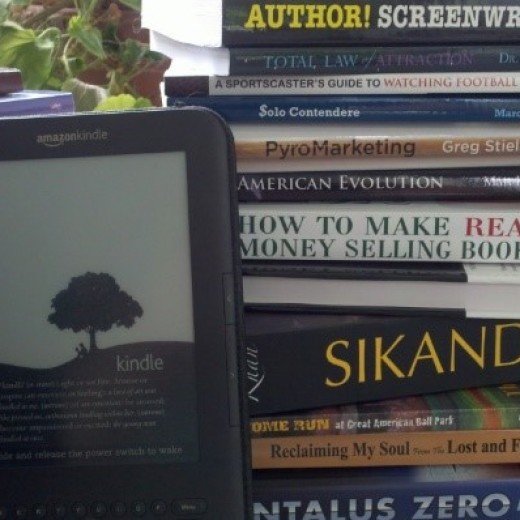10 Writing Tips from the 2016 U. S. Presidential Race by Nevada McPherson
 Let’s welcome back monthly columnist Nevada McPherson as she shares with us “10 Writing Tips from the 2016 U. S. Presidential Race!” Enjoy!
Let’s welcome back monthly columnist Nevada McPherson as she shares with us “10 Writing Tips from the 2016 U. S. Presidential Race!” Enjoy!
***
I’ve been watching lots of news lately (probably way too much) and now that the election is over, I’m still watching news, but am also enjoying getting back into my favorite scripted T.V. shows, looking at non-news print media, and catching up on some reading in other subjects. I’m also ready to take some big, bold steps in my writing and to hold a staged reading of one of my screenplays in the near future (more on that soon). Since I have followed the election quite closely, there are things I’ve noticed about Hillary Clinton and Donald Trump when they were on the campaign trail, through the end of election night and beyond, from which we can all learn, much of which can be applied to the writing side of life.
- Attitude is everything.
Love it or hate it, Donald Trump never took the stage at one of his rallies without projecting supreme, unswerving confidence. No matter what he said, he said it with a self-assuredness that some found obnoxious and some found comforting. Artists and writers must have a healthy dose of attitude and unswerving confidence in their work to put it out there for all to see, pick apart and critique, or hopefully understand and appreciate. You may not want to come across exactly like the Donald (or you might, though he is one of a kind), but remember that if you don’t believe wholeheartedly in your work, no one else will, so don’t be afraid to speak up and speak out on your own behalf when it comes to your writing.
- Keep your cool.
Whether under fire from her opponent, the F.B.I. or the media, Hillary Clinton held it together and never let them see her sweat. During the debates, she held her own, never lost her temper and always took things in stride, usually with a smile. Even when things got turbulent around her she projected the image of a woman in control of her emotions. Whether you’re fighting a bad case of writer’s block, enduring a blistering critique in a workshop session or encountering lackluster attendance at a book-signing, smile and take it all in stride. It’s all good. Why? Because it’ll make you stronger.
- Be authentic.
Donald Trump said some things that made headlines during the campaign and not always favorable headlines. In spite of this, his fanbase/ potential voters seemed drawn to the fact that he says what he thinks, hence the refrain of “Let Trump be Trump” heard so often. Many thought Hillary, on the other hand, came off as guarded, even calculating, which gave some voters pause as they wondered if she was speaking from the heart or saying what they wanted to hear. If you have built or are in the process of building an audience for your work, you must be authentic and let your true voice come through in your writing. That’s what your readers want. It may not be everyone’s cup of tea, but that’s okay. Really. It is.
- It’s all about the work itself.
There were plenty of bombshells and distractions that came up over the course of the presidential campaign, from WikiLeaks e-mail dumps and Hollywood Access tapes to Twitter wars and rogue laptops. No matter what happened, though, the candidates soldiered on inexorably toward election day when one of the most contentious and unusual presidential campaigns in American history would come to an end, the people would speak, the forty-fifth president of the United States would be decided, and that person must lead. That’s what all this is for. The chatter, money spent and all the punditry and predictions fall away when the people have spoken. No matter what else is going on in your world and in the orbit of your work from honing your social media presence to getting a new cover photo to outfitting your new home office space, it’s really all about the butt-in-chair, words-on-paper (or screen), blue-collar act of writing: the heavy lifting, the finding the right words and putting them in the right order. In the end, that’s all that matters. You must set things in motion for your characters and follow through with what you started. You may not be leader of the free world, but you’re the leader of the world you’ve created. You have a responsibility to yourself and your readers. The other stuff should support that, not the other way around.
- Stay on message.
For Trump, it was “Make America Great Again.” For Clinton, “Stronger Together.” What’s your slogan? What keeps you waking up every day excited to get to your writing? What will help you stay on track when everything is going wrong, or when your schedule gets turned upside down? What will focus your mind and feed your spirit? Whatever it is, include that in your slogan, write it down, and put it where you can see it every day.
- Ignore the polls (for now).
Clinton was predicted to be the winner, even after the polls tightened in late-October. Pundits predicted her victory, and when she lost the Electoral College vote, those pundits said the polls were wrong, and the pollsters said the pundits were just seeing the outcome they wanted as they read the demographic tea leaves. Turns out, when you’re dealing with social movements, primary fallout and broad economic discontent, the numbers don’t always tell the whole story. If you’re worrying about the numbers involved in what it takes to make the New York Times Bestseller list/ Amazon Bestseller list/ your niece’s favorite bedtime story list, you’re spending precious writing time worrying about things you can’t control. It’s great to get good (or excellent!) reviews but don’t fixate on that one bad one that brings you down a half-star rating. Of course, you have to consider who your audience is and how to find them, but you’re better off focusing on that rather than some arbitrary, far-flung numeric goal. If it hits and it’s a hit—you’ll find out soon enough. Until then, just do your very best.
- Don’t ignore the zeitgeist.
In retrospect, pundits now say that Trump was a “change” candidate in a “change” election and that’s why he won. They also say that his message resonated with American workers who have been feeling forgotten in post-industrial America. Apparently, Clinton wasn’t able to connect with those voters as effectively as she needed to, and many claim that may have lost her the election. How can you connect with your readers in a way that makes your writing vibrant and relevant? You can and you must write whatever is strongest in your heart, but how does it resonate with the world we live in? Even if you’re writing about Bat Masterson traversing the Old West or space ships taking humans to live on Mars, there must be something about those characters and those times that relate to the now. What’s the connection? To voters, to readers—connection is where the magic happens in storytelling. As E.M. Forster said: “Only connect.” Now more than ever.
- Don’t censor yourself (but don’t go crazy either).
Donald Trump has famously said some over-the-top things (to put it mildly). Is this part of the “Let Trump Be Trump” phenomenon (see # 1. above) or is it something else? If you’re not made of Teflon (as Trump seems to be—some of his comments would’ve destroyed just about any other candidate) you have to have a filter of some kind, but word on the street is that a shoot-from-the-hip style is quite in right now. As a writer, you’re expected to have a point of view, so you have to put it out there. Don’t be afraid to be controversial, but there’s a fine line between controversy and offensiveness so you have to navigate that territory for yourself. Some comedians/ singers/ businessmen-turned-politicians have made entire careers off of living on the edge this way, but you have to decide where you’ll go and where you won’t. Controversy can spark discussion and dialogue around timely topics, so go for generating more light than heat when you decide to speak up and speak out.
- Be gracious in victory.
Having won the election, Donald Trump seemed quite humbled as he took the stage on election night. For all his campaign bluster and railing against his opponent, the press and the Establishment, Trump called for unity. He praised Hillary Clinton for a hard-fought campaign a said that America owes her a “debt of gratitude” for her service. It was a surprisingly positive speech after all the blistering campaign rhetoric of the last several weeks, and wrapped up election night on a hopeful note. Sometimes writing can seem like a competitive business but if you find yourself getting caught up in the race, whether you’re riding high or not, remember to look around at your contemporaries (after all, they are your colleagues, not competitors) and offer them words of encouragement. It may be just the thing they need at just the right time. And they’ll do the same for you.
- Be gracious in defeat—and carry on.
Hillary waited until the day after the election to give her concession speech so that she could get herself and her thoughts together. She addressed her supporters by being honest about her own disappointment and acknowledging theirs as well. She called for unity going forward for the new president-elect and also called for vigilance in ensuring that the new administration work for the greater good for all Americans. Even in defeat, Hillary Clinton projected strength. You may experience your own defeats in your life as a writer, even when you give it your all. Sometimes things may not work out as projected, or may not come together as planned, but you must go on, and your stories must still be told. Be strong, be bold, and never give up.
Happy Thanksgiving to all, and happy writing!
***
ABOUT THE AUTHOR
 Nevada McPherson lives with her husband Bill and rescue Chihuahua, Mitzi in Milledgeville, Georgia, where she is a professor of Humanities at Georgia Military College. Nevada received a BA in English/ Creative Writing and an MFA in Screenwriting from Louisiana State University- Baton Rouge. She’s written over a dozen feature-length screenplays, plays, short stories and the graphic novels, Uptowners and Piano Lessons. Queensgate, sequel to Uptowners, is her third graphic novel. For more information, visit www.nevada-mcpherson.com.
Nevada McPherson lives with her husband Bill and rescue Chihuahua, Mitzi in Milledgeville, Georgia, where she is a professor of Humanities at Georgia Military College. Nevada received a BA in English/ Creative Writing and an MFA in Screenwriting from Louisiana State University- Baton Rouge. She’s written over a dozen feature-length screenplays, plays, short stories and the graphic novels, Uptowners and Piano Lessons. Queensgate, sequel to Uptowners, is her third graphic novel. For more information, visit www.nevada-mcpherson.com.






